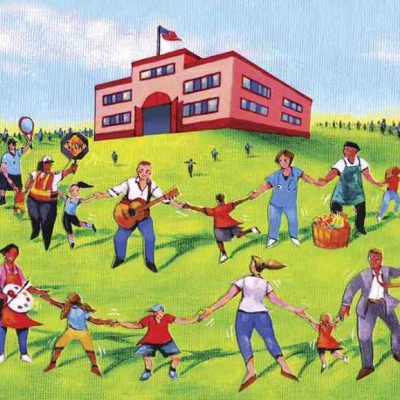Learning a new language is hard but possible
Studying a foreign language was difficult for me at first because I previously knew how to speak multiple languages: French, Portuguese, Fulani, and a little Spanish. So, I never attempted to utilize Google Translate when learning because I was passionate about English and intended to master it rapidly with little help. Reading books on grammar rules on my own was too complex and difficult for me, but when I discovered easier books, it helped me a lot and I began gaining knowledge very quickly. Listening to music and interpreting songs also really helped because I got to hear the pronunciation and I like singing. I sing it and it tends to help me memorize the vocabulary. Hopefully, these tips will help people trying to learn another language.
1. Try your best to speak with fluent people
When engaging with a native speaker, you will not only have the chance to improve your dialect and language but also gain conversational experience. This will also allow you to learn more about the cultural contexts.
2. Try reading books in that language
It increases your attentiveness and ability to think critically while also stimulating your ideas. Reading books can pull in your imagination because when you read something that interests you tend to be fascinated and continue reading it. You will automatically start picturing stuff in your head and thinking in that new language.
3. Make new friends
There will be a lot of communication in different languages and everyone is learning about each other’s cultures. When you make new friends who speak English you tend to ask more questions about the language, such as pronunciations, writing, etc. It is almost like learning from professionals for free!
4. Watch movies online
Make sure you put on the subtitles because they will help you learn some new vocabulary and new words you didn’t know before. It’s not guaranteed that you will understand everything in the movie but you will probably comprehend the main ideas in the movie. Watching movies in English will help with pronunciation and reading well.
5. Consider the value of learning a foreign language
Many people begin studying a language without knowing what they will do with it. They are, without a doubt, destined to fail. You can know all the strategies of learning languages, but if you don’t understand why you’re doing it and how it will benefit your life, you’ll lose your desire.
I hope you found this article to be both useful and interesting. I wish you the best of luck in the future. If you want to learn other languages that you genuinely love, try and listen carefully, practice with friends or native speakers, and ask questions about the language. Don’t forget to try your hardest by writing often without the assistance of Google Translate.







